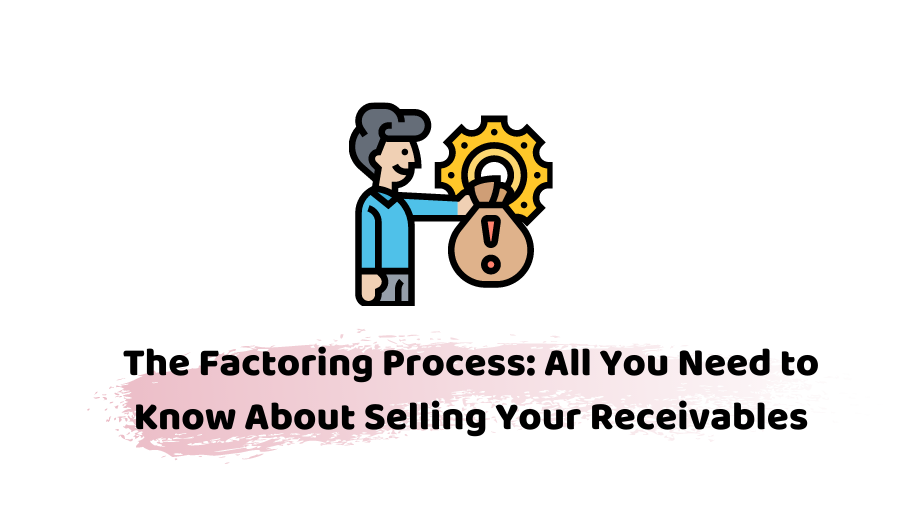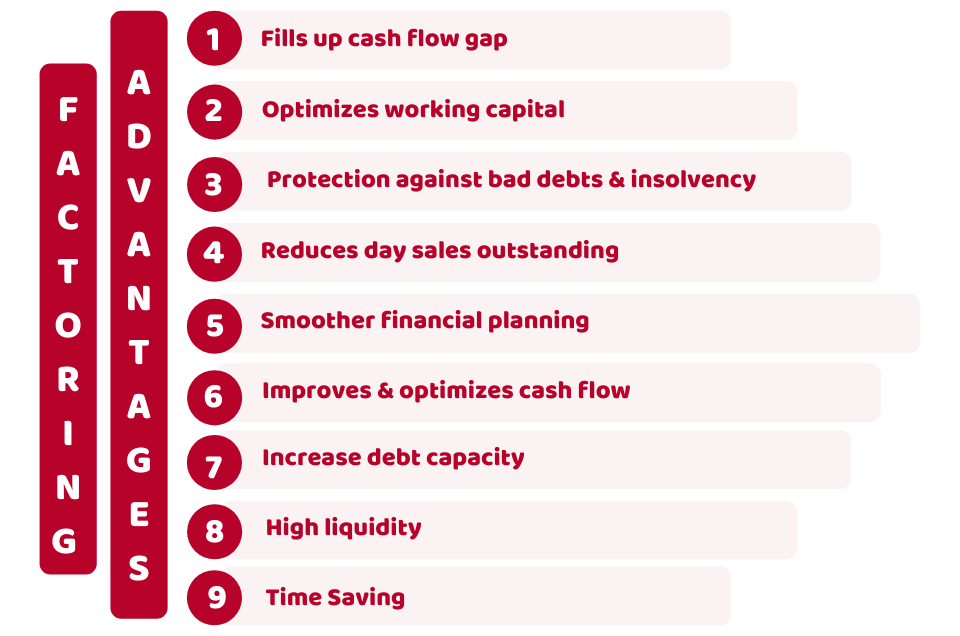If you’re a business owner, you might be aware of the fact that cash flow is the lifeblood of your business. Without a proper flow of cash, you can’t carry out your business operations, especially if you’re a startup. Consequently, poor cash flow management adversely affects your business growth, whether you own a new business or an established enterprise. One of the best ways to resolve cash flow shortfall for smooth business operations is to sell your account receivables to factoring companies.
Selling the account receivables invoices (unpaid) is a quick way to get cash for your business. But the process is not as simple as you think. So, let’s delve into its details to find out more.
In this blog, we’ll discuss:
- What is factoring?
- Advantages of factoring
- Process of factoring
- Why factoring?
- Factoring companies
- Sum Up
Are you struggling to overcome your cash flow issues, reach out to our accountants for help!
What is Factoring?
It is a financing process, where a factor (third party) will buy and collect your outstanding customers’ invoices. Here, you have the choice to sell all or some of your account receivables to factoring companies or you can directly sell them.
You should keep this thing in your mind that you’d not get the actual price with this process rather you’d get a discounted price. Most often, the factor will charge a fee for each invoice.
This method is one of the best ways to manage your cash flow issues, within a short period, to afloat your business during financial troubles. You can get a sufficient amount of cash from the factor if your business has a strong sales history. However, based on the sum of the money taken as advanced, the factor will charge a fee or interest or both.
Advantages
The advantages of selling receivables to factoring companies may vary based on your company’s needs, type and model. However, these are some common advantages you can get with factoring:
- It fills up the cash flow gap that occurs due to late payment of invoices
- Optimizes your working capital
- Protection from losses, bad debts, and insolvency, etc
- Reduces your day sales outstanding
- Smoother financial planning and cash flow
- Improves and optimizes cash flow forecasting
- Boost the debt capacity
- High liquidity
- Time to focus on business operations
Factoring Process
There is no standard factoring process as it varies from company to company. While factoring, you need to sign an agreement that will entail some basic elements to improve the cash flow of your business. Generally, it works like this:
- First, you complete an application form, after approval you sign an agreement with a factor
- While working with a factor, you accept to provide all new invoices of the customers to it
- You receive cash (advance) as a return based on the agreed percentage of the agreement that is usually 80 to 90 percent
- With due invoices, the factor receives the payment, deducts its fee or interest and pays you the balance of the invoice amount
- The 10-20% is taken as a reserve until the invoice payment is received in full
- This process is repeated until you have a stable cash flow
Looking for financial advice? Get in touch with our financial experts!
Why Factoring?
This modern practice of selling receivables to factoring companies has been going on since the 1300s. Now, this practice is widely recognized by banks and other financial institutions due to:
- the provision of small business loans to businesses lacking strong credit history
- cost-effectiveness than providing early payments discounts to the customers
- the prompt access to cash on service provisions and goods’ shipment than getting payments after a discount
- the rapidness of the payment process for managing the cash flow
Though this process is costly, but its benefits are worthwhile. You need to remember that factoring is not similar to a bank loan.
Some Prominent Factoring Companies:
Here is the list of some prominent factoring companies in the UK:
- Bibby Financial Service
- Hitachi Capital (UK) Plc
- Market Invoice
- Close Brothers Invoice Finance
- IGF Invoice Financing
- RBS Invoice Finance
- HSBC Invoice Finance (UK) Ltd
- Llyods Commercial Finance
- Skipton Business Finance
- Aldermore Invoice Finance
Summing up
Now you have got to know that selling receivables to factoring companies is a simple, easy and reliable process to mitigate the cash flow issues of your business. You can go through the guidelines of the above-mentioned factoring companies that charge reasonable fees for large advances. Besides, you need to aware that you won’t receive the full amount of your invoice as each company charge a fee. However, invoice factoring can resolve your cash flow issue for smooth business operations.
Moreover, you also need to consider other financing options that suit your business.
Level up your business growth by managing its finances. Focus more on your business by handling your financial worries to Accotax. We provide tailored and affordable accounting services for businesses, individuals and landlords. Contact us right away!
Disclaimer: This blog provides general information about the topic.






















































